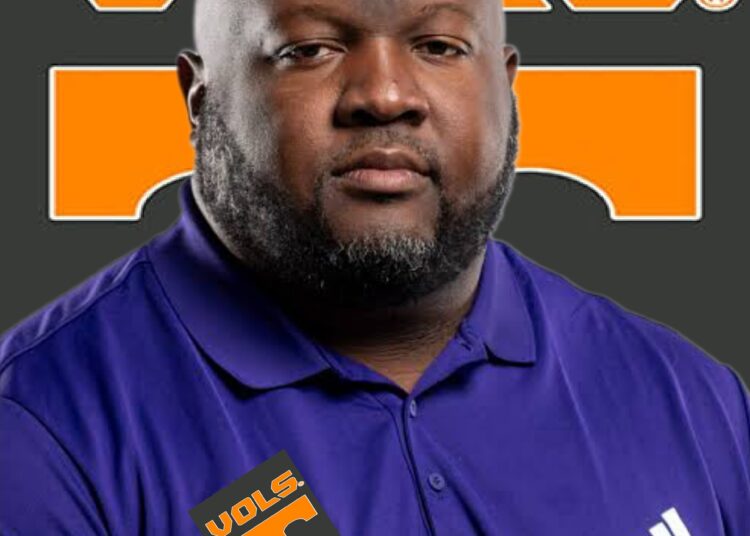Will Tremaine Jackson’s potential to transform Prairie View A&M University (PVAMU) into a powerhouse akin to the University of Tennessee Volunteers (Tennessee Vols) is a topic worth exploring. While it’s difficult to predict the future with certainty, Jackson’s background, leadership, and approach could significantly shape the trajectory of the program. Let’s break this down in terms of recruiting, coaching philosophy, program culture, and long-term impact.
**1. Coaching Background and Philosophy:**
Tremaine Jackson brings a wealth of experience to PVAMU, having previously served in various coaching roles, including defensive coordinator and head coach. His coaching style focuses on discipline, accountability, and a culture of excellence. These principles are often associated with powerhouse programs like Tennessee, where high standards are non-negotiable. Jackson’s commitment to building a solid foundation, both on and off the field, could replicate the kind of culture Tennessee has nurtured over decades.
The Tennessee Vols, under the leadership of coaches like Phillip Fulmer and now Josh Heupel, have maintained a focus on recruiting elite talent while developing strong team dynamics. Jackson could mirror this philosophy, focusing on developing talent from the ground up, both at the high school and junior college levels. If he can establish strong recruiting pipelines, especially with top talent in Texas, which has an abundance of football prospects, he could elevate PVAMU to a competitive level, akin to Tennessee’s sustained success.
**2. Recruiting and Talent Acquisition:**
Recruiting plays a significant role in a program’s success. Tennessee’s rise as a powerhouse program has been fueled by its ability to recruit high-level athletes, many of whom have gone on to play in the NFL. Jackson’s challenge would be to replicate this in the Southwestern Athletic Conference (SWAC), where competition for talent is fierce.
However, PVAMU has its advantages. Texas is a hotbed for college football talent, and Jackson’s connections within the state can help attract high-caliber recruits. By emphasizing PVAMU’s resources, its culture, and the potential for athletes to make an impact at a historically black university (HBCU), Jackson could appeal to prospects who want to play at a competitive level but may be overlooked by larger programs.
Jackson’s ability to build relationships with recruits, their families, and high school coaches will be pivotal. If he can recruit at a level comparable to the elite SEC programs, like Tennessee, it would give PVAMU the talent needed to compete on a national level.
**3. Program Culture and Team Development:**
One of the most challenging tasks for Jackson will be transforming the team culture. The Tennessee Vols have a winning mentality ingrained in their program, where the expectation is always to compete for championships. Jackson’s job would be to instill a similar mindset at PVAMU.
This involves not only developing player skills but also fostering a sense of unity and discipline. Tennessee’s success has often been driven by a strong locker room culture, with leadership from both coaches and players. Jackson will need to build a coaching staff that mirrors the leadership and commitment found at elite programs like Tennessee. That means creating an environment where players feel empowered to take ownership of their development and hold each other accountable.
**4. Long-term Vision and Impact:**
Transforming PVAMU into a program that rivals the stature of Tennessee will likely take years. Tennessee’s success didn’t happen overnight, and Jackson’s journey will be similarly incremental. Building a consistently successful program requires sustained excellence in recruiting, player development, game strategy, and overall program administration.
It’s also crucial for Jackson to build a competitive game schedule and take advantage of national exposure opportunities. PVAMU’s rise on the national stage would depend on both in-conference dominance and the ability to win key non-conference games, including bowl appearances and post-season opportunities. Just as Tennessee earned recognition through high-profile games and championships, Jackson’s ability to schedule and win big games will play a significant role in PVAMU’s transformation.
**Conclusion:**
Can Tremaine Jackson transform PVAMU into a program similar to the Tennessee Vols? The answer lies in his ability to build a solid foundation through recruitment, develop a winning team culture, and leverage the program’s strengths. While it might take several years, Jackson’s leadership could indeed move PVAMU closer to the national recognition that Tennessee has enjoyed for decades. With the right combination of vision, strategy, and execution, Jackson could lay the groundwork for PVAMU to become a respected force in college football, just as Tennessee has been. However, this transformation would require immense dedication and a long-term commitment from both Jackson and the university.













